Key Takeaways
- Dehydration and electrolyte loss in hot weather can lead to glucose imbalances.
- Electrolytes such as sodium, potassium, magnesium, and calcium fuel proper glucose metabolism, support muscle function, and prevent fatigue.
- Stay hydrated with water and electrolyte-rich foods or drinks, and monitoring glucose levels if needed, can help prevent heat-related complications.
{{mid-cta}}
Summer brings hot days that can significantly impact your fluid levels, electrolyte balance, and ultimately, your blood glucose management.
This article provides a helpful guide explaining how high temperatures can lead to fluid and electrolyte loss, thereby disrupting blood glucose regulation. Discover the signs of imbalance and practical summer hydration tips to help maintain optimal glucose levels during heat stress.
How Heat and Dehydration Impact Glucose Levels
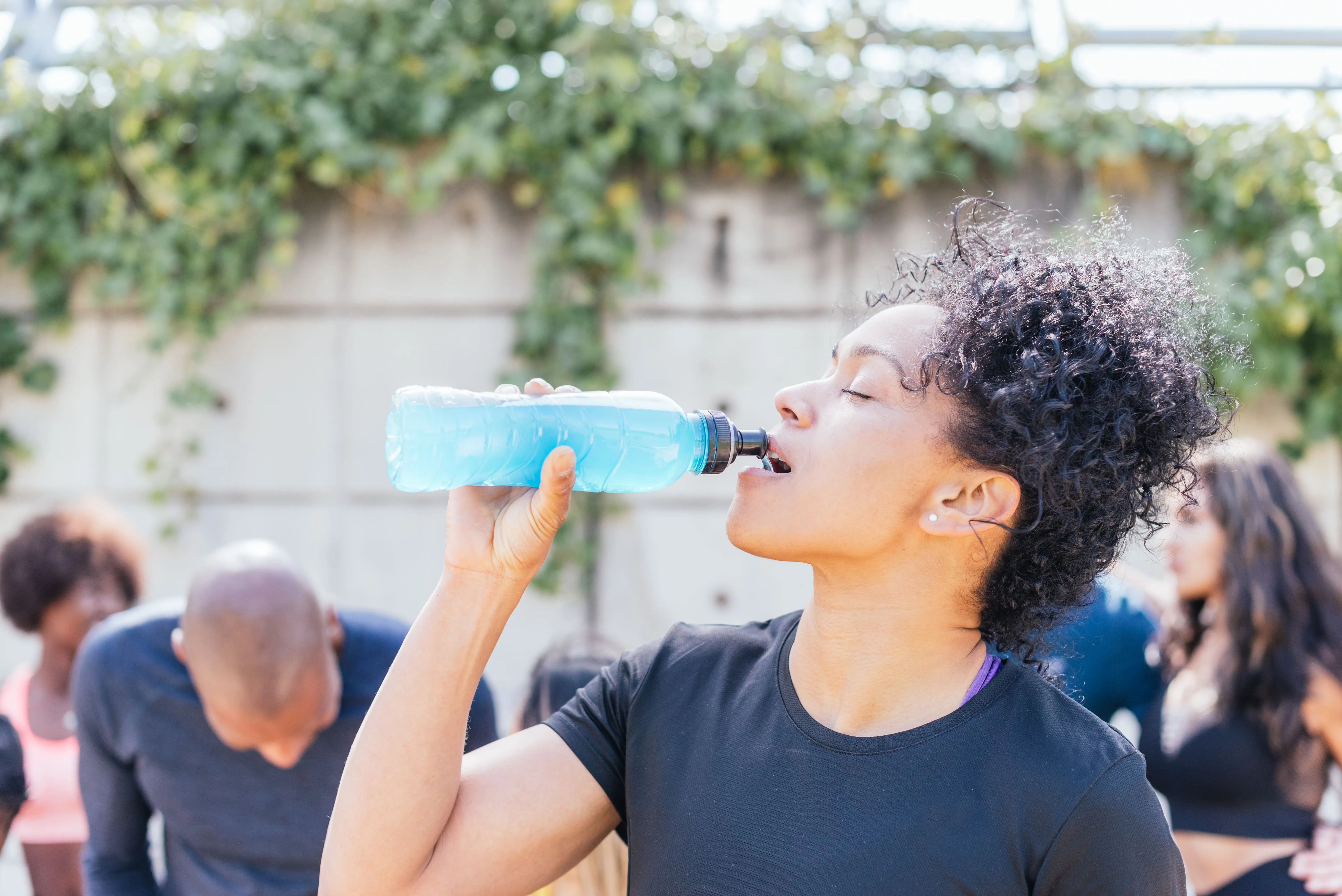
As your body strives to maintain a healthy temperature range in the heat, it employs several mechanisms to regulate its temperature. As your body senses an increase in core temperature, one primary response is to increase sweating to release excess heat and cool off.1
If you sweat excessively and don’t replenish your fluids appropriately throughout the day, you can become dehydrated. Dehydration or impending dehydration is found with a 2% weight loss (about 3 to 4 pounds lost for adults weighing 180-200 pounds).2
Dehydration causes fluid loss from the blood, resulting in more concentrated glucose levels that present as elevated blood glucose due to the imbalance in the ratio.3
Stress of any kind (illness, work-related, or environmental) triggers the release of hormones, allowing your body to have enough energy to deal with the stress (such as the fight-or-flight response). During stress, the body releases cortisol and adrenaline, which help release stored glucose (energy) for temporary use, thereby increasing blood glucose levels.4,5
Correcting mild dehydration (and preferably preventing it) helps maintain blood glucose levels within a normal range.3
Electrolytes’ Role in Glucose Metabolism
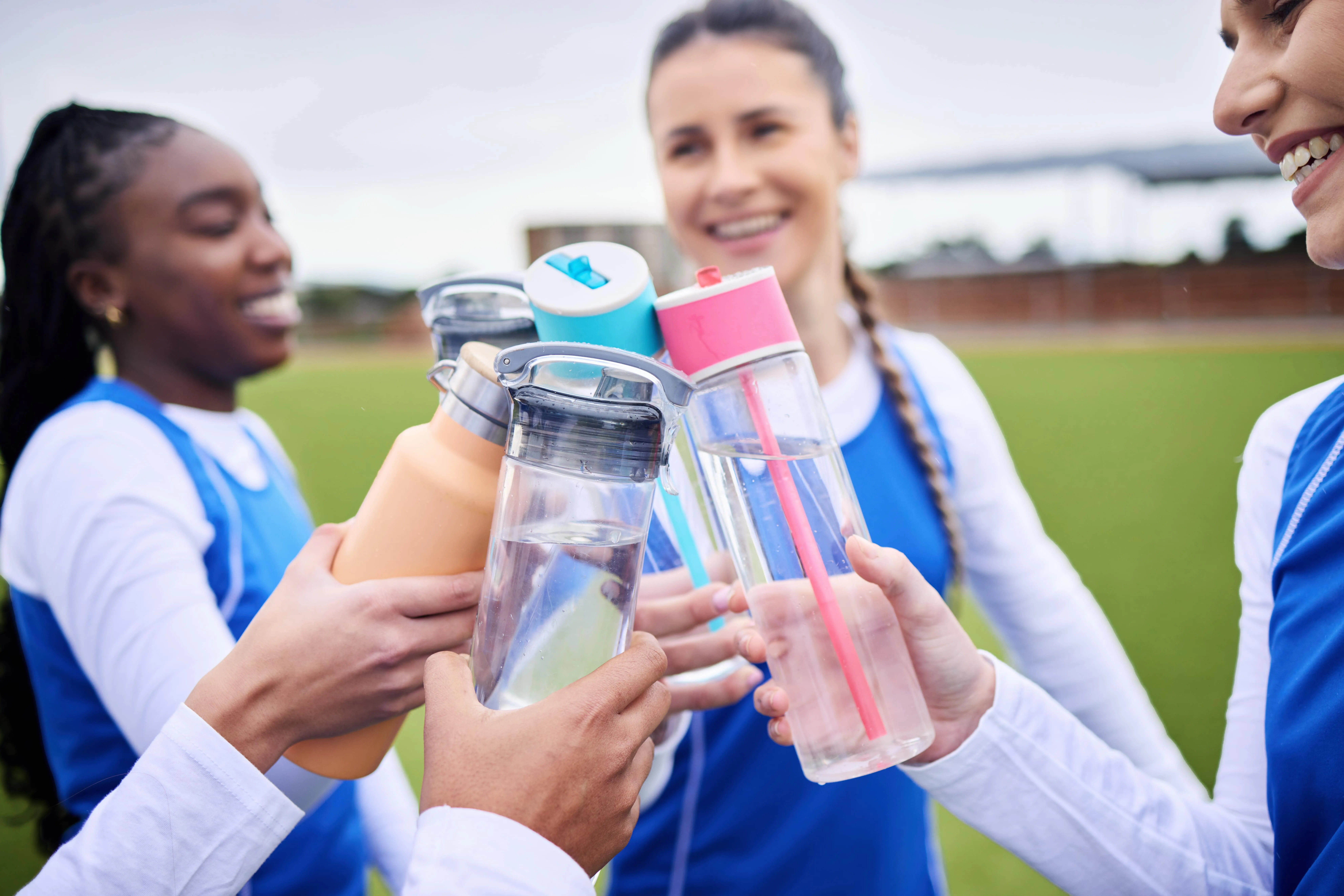
When you sweat, you also release electrolytes, including sodium, potassium, magnesium, and calcium.
Sodium, chloride, and potassium regulate and maintain proper fluid balance. Magnesium and calcium play crucial roles in muscle function and energy (glucose) metabolism.6
For an individual without diabetes, a sports drink with electrolytes can help replenish significant fluid loss in the heat, such as 2% weight loss, exercise for over one hour, gardening, or yard work for several hours. The electrolytes are essential for regulating nerve and muscle function, preventing cramps and fatigue, rebuilding damaged tissue, and restoring optimal glucose levels.3
Individuals living with diabetes should closely monitor their glucose levels before, during, and after exposure to heat and physical activity. Some research suggests that consuming a sports drink during exercise can help prevent low blood sugar levels.3
Signs You’re Dehydrated or Electrolyte Deficient
Your body communicates with you through signs, like hunger and stomach growling, when energy is needed. The same is true for dehydration and excessive loss of electrolytes.
Symptoms of mild dehydration include thirst, dry mouth, fatigue, muscle cramps, headaches, dizziness, and changes in heart rate.2
Symptoms of low blood sugar include hunger, dizziness, irritability, sweating, shaking, heart palpitations, weakness, and confusion.7 High blood glucose level symptoms can include excessive thirst, frequent urination, weakness, blurred vision, and weight loss.8
Many of these signs are similar. Listen to the cues from your body and investigate the cause. You may be dehydrated, in need of electrolyte replacement drinks, or have blood glucose issues requiring medical treatment.
Best Hydration Practices for Blood Sugar Stability
Here are some tips for the best hydration practices for blood sugar stability:
- Hydrate before activity and often. If you start physical activity outdoors when thirsty, you are already at risk for dehydration.
- Drink water consistently. Aim for 8 to 12 ounces per hour in the heat.
- Try electrolyte drinks or supplements, or low-sugar sports drinks. If you choose sugar-free or “zero” sugar versions, know that these contain artificial sweeteners, which don’t raise blood glucose levels but have other long-term effects on your health (weight gain and gut bacteria imbalance).3
- Avoid excessive caffeine or alcohol. Both caffeine and alcohol can worsen dehydration and spike glucose levels.3
Foods That Help Maintain Electrolyte Balance

Foods can also help maintain electrolyte balance and support ideal hydration.
Natural sources of electrolyte-rich foods include bananas, watermelon, leafy greens, tomatoes, salsas, potatoes, avocados, nuts, seeds, coconut water, milk, and yogurt.
Foods rich in water content include most fruits and vegetables, but especially cucumbers, watermelon (and other melons), strawberries, tomatoes, and cantaloupe.9
While fluids are found in foods, they likely won’t meet more than a quarter of your daily fluid needs (the total goal is around 6 to 8 cups daily, but often more is needed in the heat).10
Support stable blood glucose levels with balanced meals and snacks that contain protein, fiber, and healthy fats alongside proper hydration.
Tips for Monitoring and Adjusting Hydration
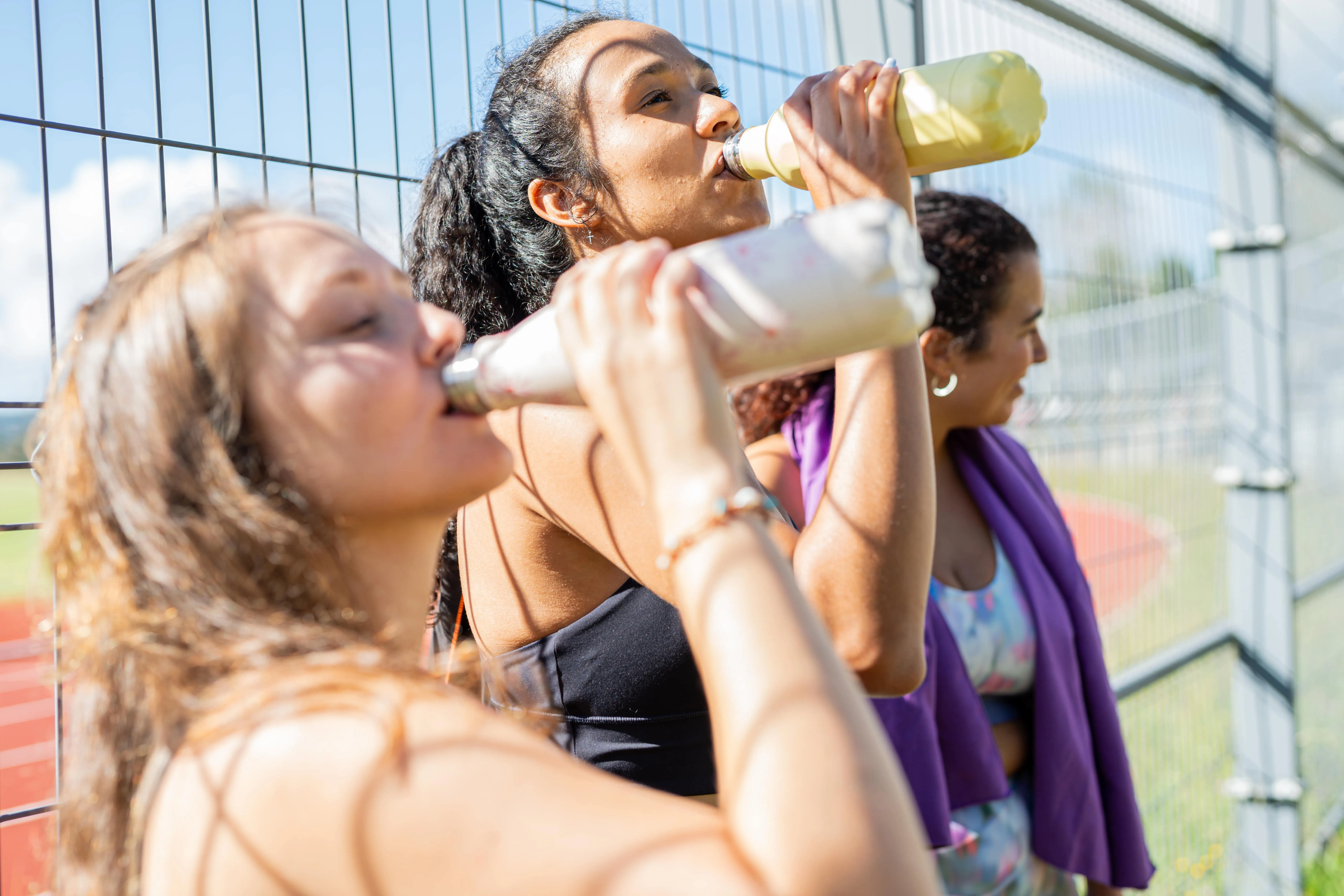
A non-invasive, simple hydration indicator is to check your urine color. Pale, light yellow urine usually indicates that you are well hydrated, and dehydration is likely if the yellow color darkens; severe dehydration occurs when your urine turns brown.11
Electrolyte replacement is often necessary when you become mildly dehydrated or after spending several hours in the heat, particularly when sweating. Water is usually sufficient for activities less than one hour in the heat.3,6
If you are at risk for glucose instability, have prediabetes or type 2 diabetes, it is essential to monitor glucose before and after exposure or exercise. Monitoring your glucose levels can help you understand how dehydration, sweating, and electrolyte loss affect you.3
When to Seek Medical Advice
Hydration, electrolyte status, and glucose levels can be severely affected by prolonged exposure to heat.
Seek medical treatment for the following symptoms:
- Extreme fatigue
- Heavy sweating
- Dizziness
- Confusion
- Slurred speech
- Fast heartbeat
- Nausea
- Weakness
These symptoms may signal heat exhaustion, heat stroke, or low blood glucose levels. While slight fatigue or tiredness from being in the heat is normal, it can quickly escalate into a medical emergency if you don’t rest, cool off, and properly hydrate with electrolyte-rich drinks.12,13
The Bottom Line
Hot weather can significantly impact hydration, electrolyte balance, and blood glucose control, especially during and after physical activity.
Stay ahead of dehydration by maintaining adequate fluid intake and replenishing electrolytes after several hours in the heat, or if experiencing mild dehydration. These steps will support stable energy and glucose levels.
Simple practices, such as maintaining consistent fluid intake, making balanced nutrition choices, and regularly monitoring glucose levels, can help you stay energized and metabolically healthy throughout the summer.
Learn More With Signos’ Expert Advice
A continuous glucose monitor (CGM) allows you to see how your blood glucose levels respond to factors such as heat, dehydration, food, and physical activity. Since hot weather and dehydration can cause your glucose level to become more concentrated, a CGM can help you catch those shifts earlier.
You can then adjust your eating, hydration, and time spent outdoors in the heat to make wise choices during hot weather and improve your health.
Learn more about glucose levels and tracking on the Signos blog, written by health and nutrition experts.
Topics discussed in this article:
References
- https://www.ncbi.nlm.nih.gov/books/NBK507838/
- https://www.ncbi.nlm.nih.gov/books/NBK555956/
- https://diabetes.org/health-wellness/fitness/sports-drinks-impact-on-glucose-blood-sugar
- https://www.ncbi.nlm.nih.gov/books/NBK541120/
- https://pubmed.ncbi.nlm.nih.gov/28739050/
- https://www.sportsrd.org/wp-content/uploads/2018/11/Whats-In-Your-Sweat.pdf
- https://www.nhs.uk/conditions/low-blood-sugar-hypoglycaemia/
- https://www.nhs.uk/conditions/high-blood-sugar-hyperglycaemia/
- https://www.heart.org/en/news/2023/06/22/beat-the-heat-with-hydrating-foods-this-summer
- https://www.nhs.uk/live-well/eat-well/food-guidelines-and-food-labels/water-drinks-nutrition/
- https://pmc.ncbi.nlm.nih.gov/articles/PMC7649145/
- https://pubmed.ncbi.nlm.nih.gov/35981537/
- https://www.cdc.gov/niosh/heat-stress/about/illnesses.html


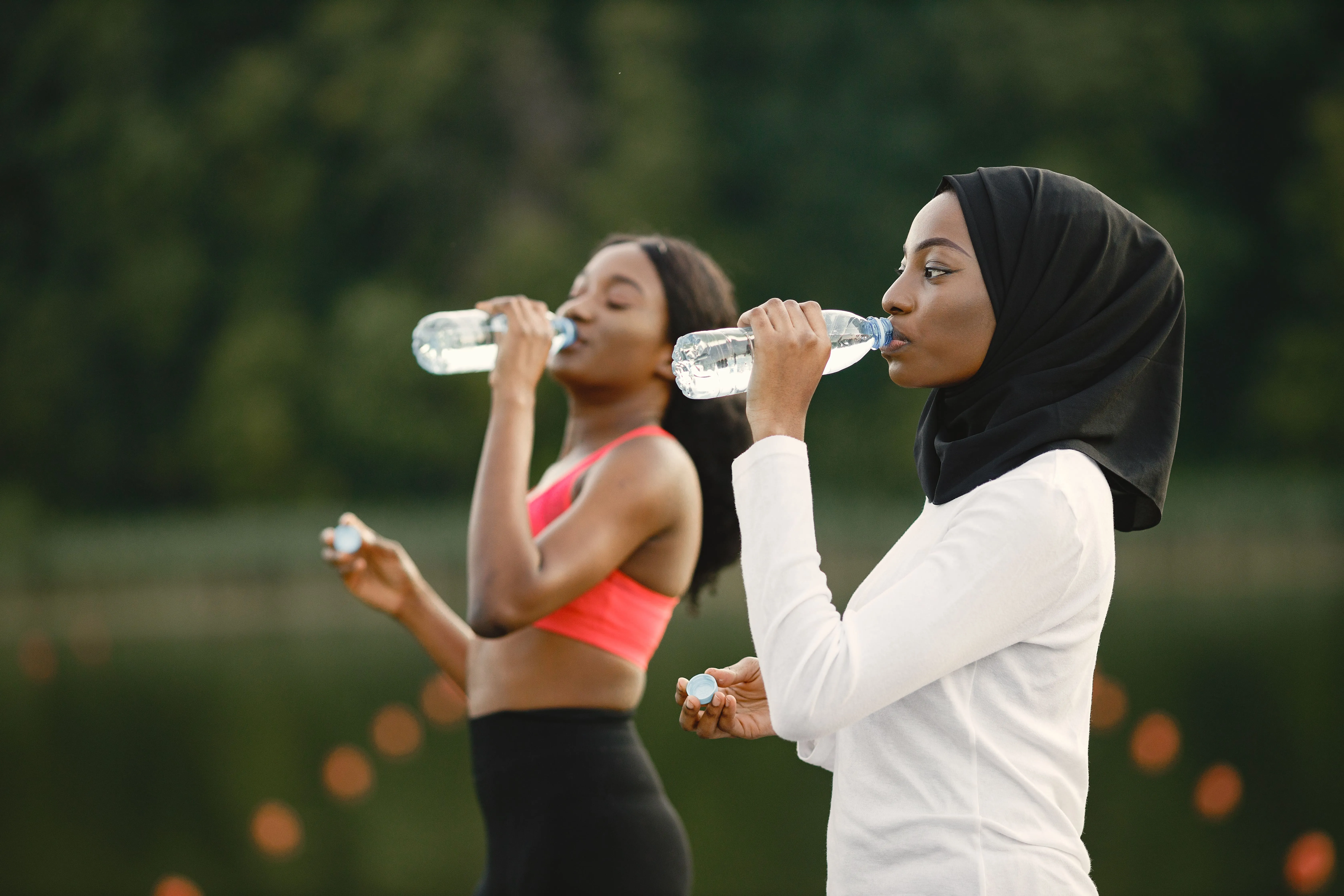

.svg)





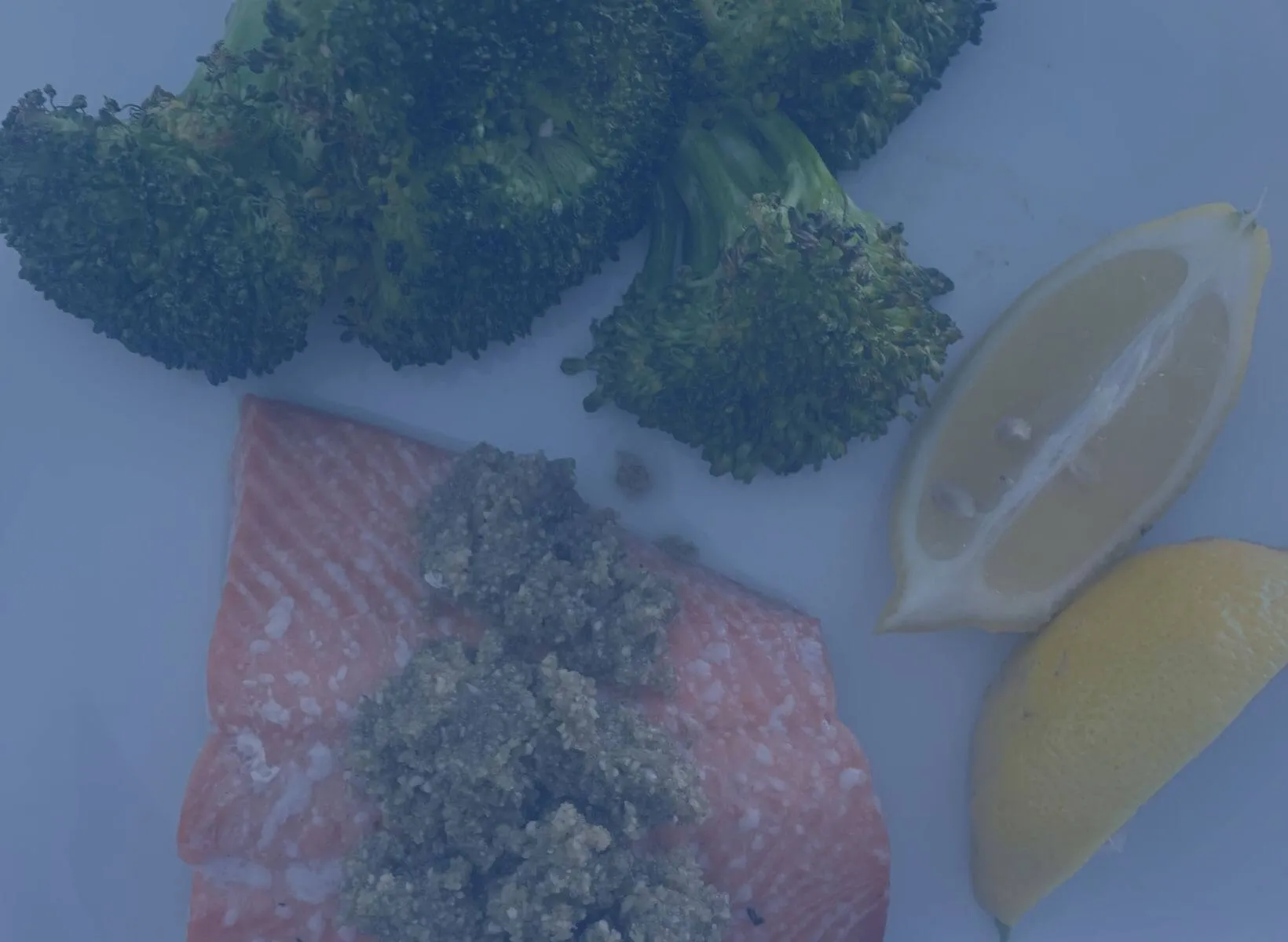
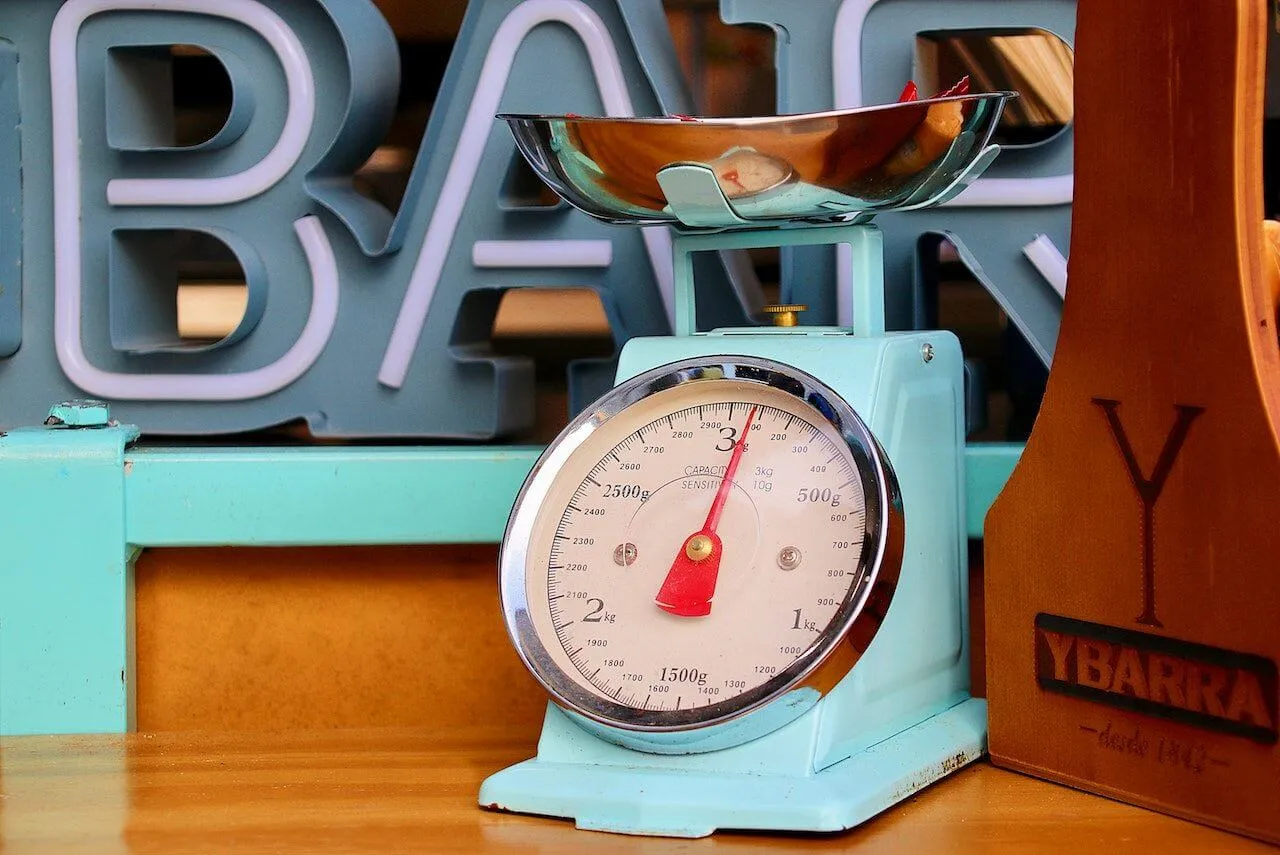
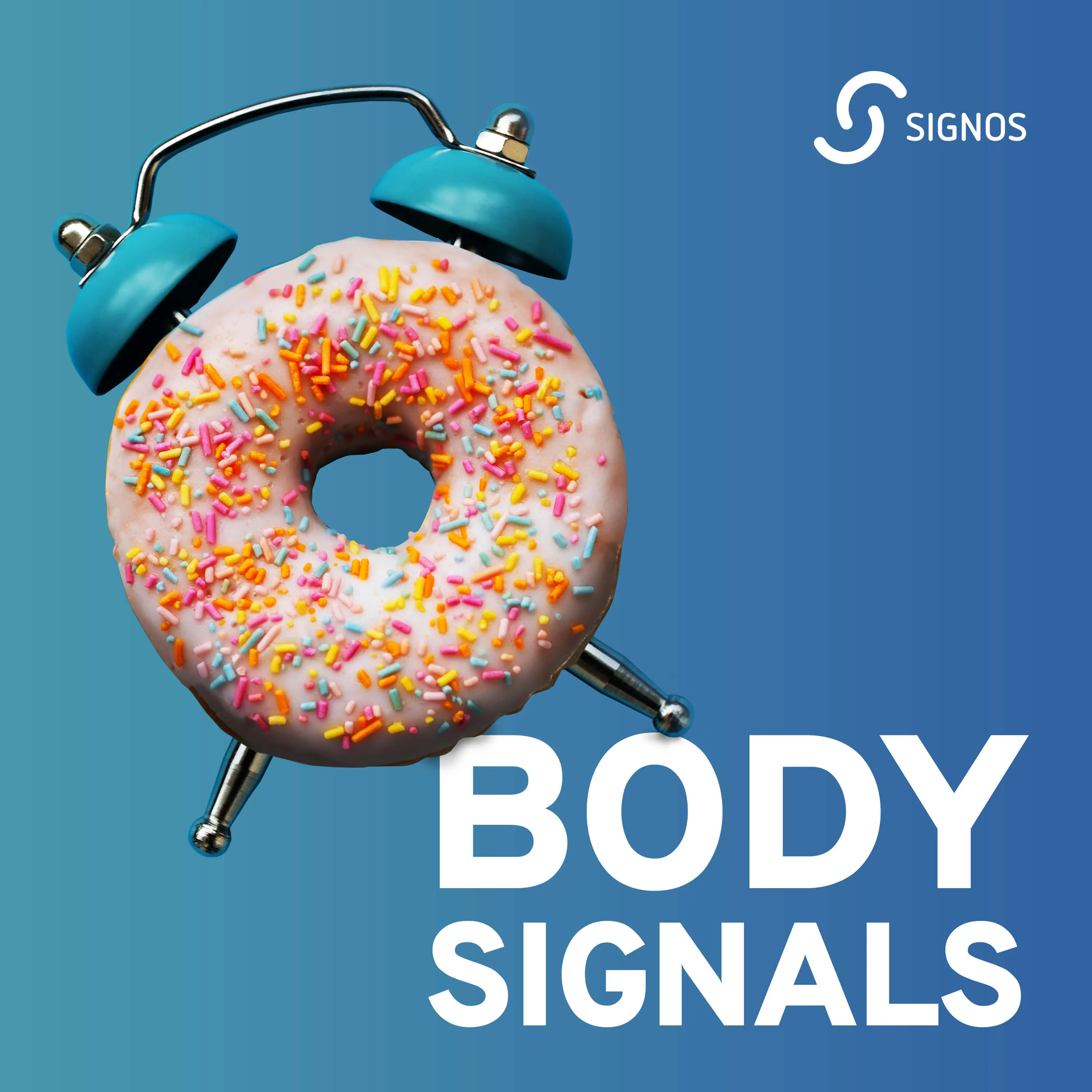

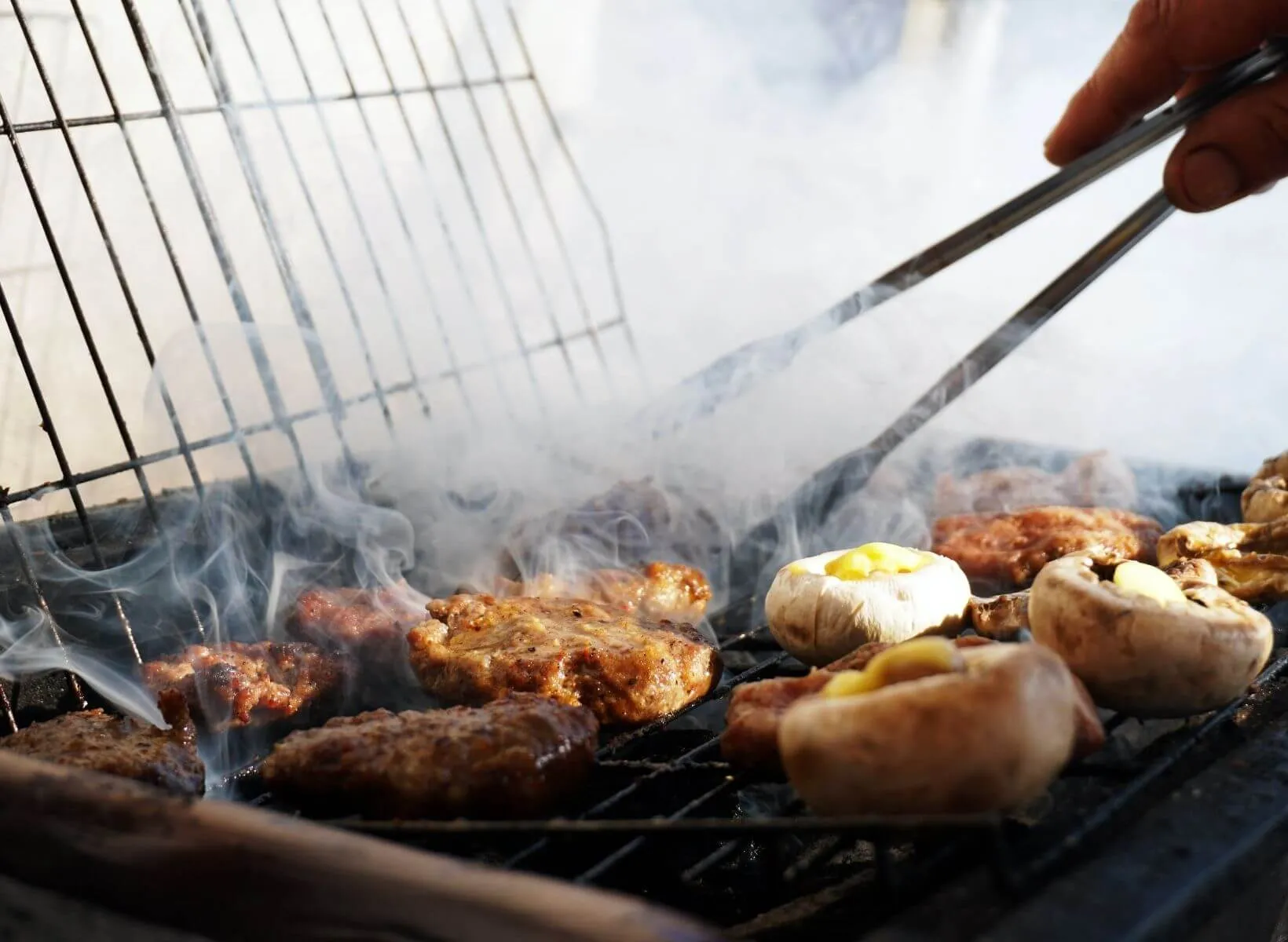
.svg)
.svg)
.svg)
.svg)
.svg)
.svg)
.svg)
